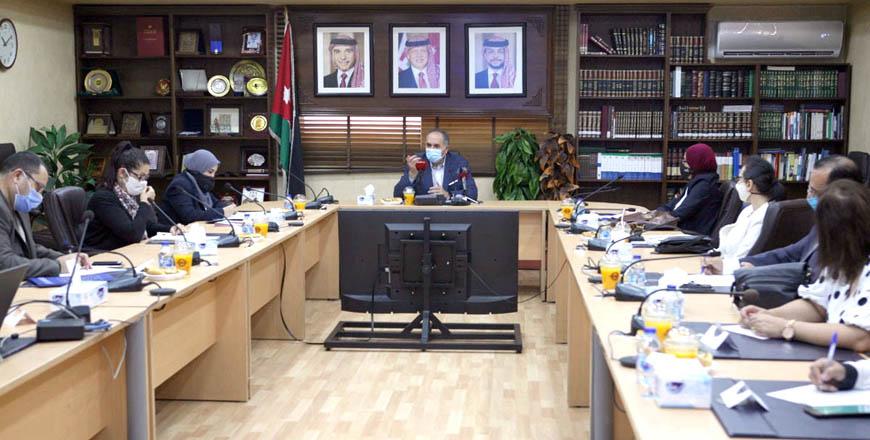You are here
Study calls for tougher action against human trafficking
By Rana Husseini - Oct 21,2020 - Last updated at Oct 21,2020
AMMAN — A local study on human trafficking has called for toughening the punishment for perpetrators of human trafficking by combining the fine and increasing prison terms.
The study, which was released earlier this week, also called for the re-establishment of the national anti-human trafficking committee to include representatives from civil society organisations and also introduce “clear” human trafficking terminologies and concepts.
The study, titled “Human Trafficking Cases in the Hashemite Kingdom of Jordan for the years 2009-2019, study analysis”, was prepared by the Jordanian Women’s Union (JWU) in cooperation with the Judicial Council, according to a JWU statement.
The study also called for including legal articles that would impose punishments on any individual who had prior knowledge of a human trafficking incident and had benefited financially or morally from the victim’s services, the statement said.
“Human trafficking crimes are a clear violation of the principle of human rights, and combating such crime entails the full cooperation of all concerned parties to ensure that Jordan is free of such phenomenon,” said JWU President Amneh Zu’bi.
That is why, Zu’bi maintained, the JWU decided to prepare a study so that “we would contribute in the efforts that are being exerted to ensure justice and equality for human trafficking victims as well as the proper application of the laws for such violations”.
JWU Director Nadia Shamroukh added that the study also aims to raise awareness about the dangers and consequences of human trafficking crimes.
“The study’s finding indicated the urgent need to help and rehabilitate victims of human trafficking and to provide them with a safe refuge while at the same time work to facilitate their voluntary return to their countries,” Shamroukh said.
Meanwhile, Muhannad Dweikat, an expert in human trafficking who prepared the JWU study, pointed out that the number of human trafficking cases in Jordan that the police had dealt with between 2009 and 2019 was 224.
Dweikat said that forced domestic labour topped the figures with 55.8 per cent, followed by organ trade (kidney) with 16.1 per cent, while sexual exploitation cases represented 6.3 per cent, followed by exploitation of prostitution cases with 5.8 per cent.
Based on the figures, Dweikat said it is important to create a national mechanism for human trafficking cases, which would be considered as a reliable reference when dealing with such cases.
“This national mechanism will work to pinpoint each entity’s role and responsibility in the event of a human trafficking violation and work to ensure that the victims would receive the best and complete service that would help them to reintegrate easily within their own communities,” Dweikat said.
In April 2019, the Kingdom launched the 2019-2022 anti-human trafficking national strategy with a focus on four main pillars: Prevention, protection, prosecution and cooperation.
In March 2019, the Cabinet approved an amendment to the 2019 Anti-Human Trafficking Law, which aimed to implement harsher punishments on those charged with crimes related to human trafficking to ensure justice and deter these offences.
The bill also provided victims of these crimes with protection and the necessary assistance to provide them with help and care.
In addition, the draft law also establishes a fund at the Justice Ministry to provide help and care to those affected by human trafficking.
Related Articles
AMMAN — The Cabinet's legal committee has approved amendments to the 2019 Anti-Human Trafficking Law and referred it to Parliament to be end
AMMAN — The Cabinet on Wednesday approved an amendment to the 2019 Anti-Human Trafficking Law, the Jordan News Agency, Petra, reported.
AMMAN — Minister of Justice Bassem Talhouni, head of the national anti-human trafficking committee, on Saturday met with representatives fro












